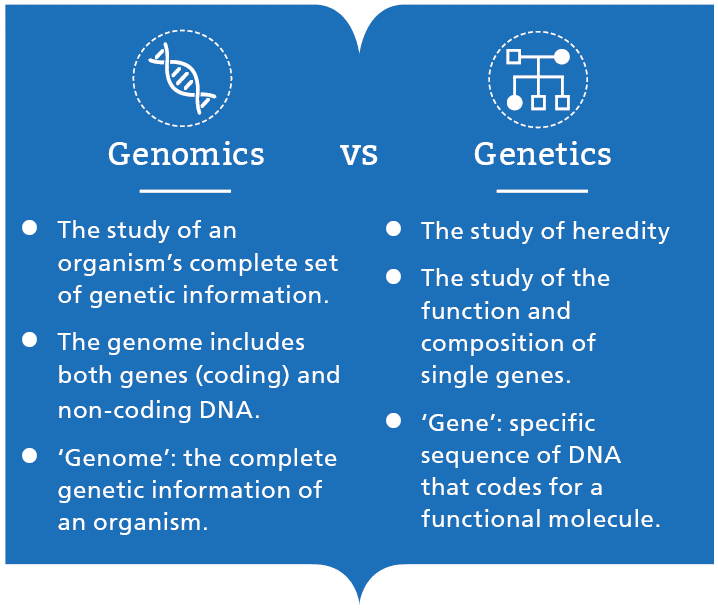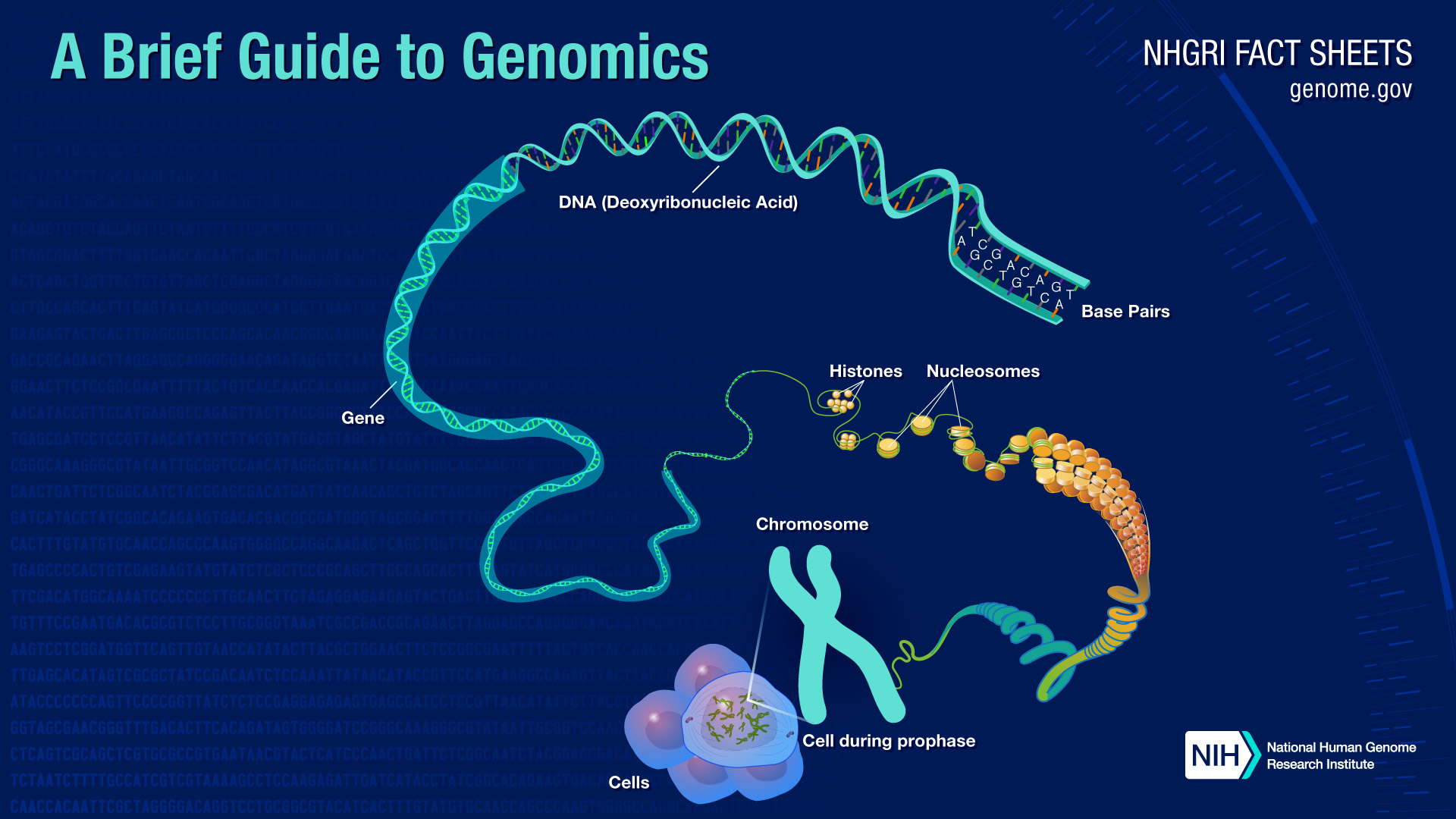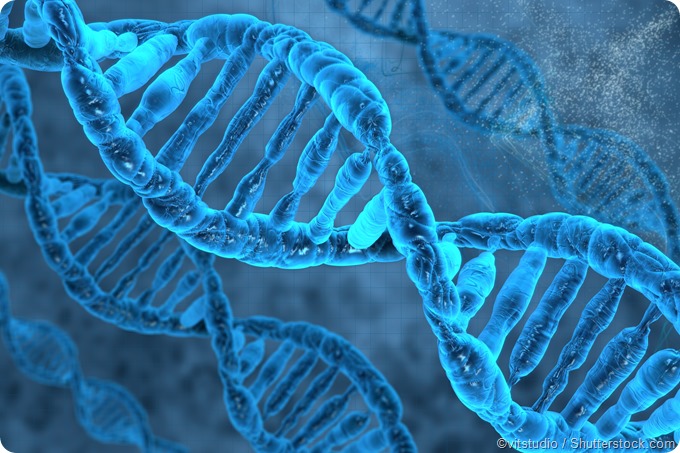Genomics is the study of an organism’s complete set of DNA, including all its genes. It involves analyzing the structure, function, and evolution of genomes.
Genomics revolutionizes our understanding of biology and medicine. Scientists use genomics to identify genetic variations linked to diseases. This knowledge helps in developing personalized treatments and preventative strategies. Advancements in sequencing technologies have made genomic data more accessible. Researchers can now study complex traits and evolutionary processes at an unprecedented scale.
Genomics also plays a crucial role in agriculture, improving crop yields and disease resistance. As our knowledge expands, genomics promises to transform healthcare, agriculture, and many other fields. The future of genomics is bright, offering vast potential for scientific and medical breakthroughs.

Credit: www.genomicseducation.hee.nhs.uk
Introduction To Genomics
Genomics is the study of genomes. A genome is an organism’s complete set of DNA. This field helps us understand the blueprint of life. Scientists use genomics to study genes and their functions.
The Human Genome Project
The Human Genome Project began in 1990. It aimed to map all human genes. Scientists from many countries joined this effort. By 2003, they had mapped the entire human genome.
This project was a huge success. It revealed the sequence of DNA in humans. The findings helped in many medical breakthroughs. They also opened doors to new research areas.
Advancements In Genomic Technologies
Genomic technologies have advanced rapidly. These technologies help in sequencing DNA faster. They also make it cheaper. The cost of sequencing a human genome has dropped significantly.
New technologies like CRISPR allow precise editing of genes. This can help treat genetic diseases. Advanced tools also aid in studying the role of genes in health and disease.
| Technology | Benefit |
|---|---|
| CRISPR | Precise gene editing |
| Next-Generation Sequencing | Faster and cheaper DNA sequencing |
Dna Sequencing
DNA sequencing is the process of determining the sequence of nucleotides in a DNA molecule. It is a crucial tool in genomics. It helps scientists understand genetic information. This process has revolutionized biology and medicine.
Next-generation Sequencing
Next-Generation Sequencing (NGS) is a modern DNA sequencing technology. It allows for the rapid sequencing of large sections of DNA. NGS is faster and cheaper than older methods. It can sequence millions of DNA strands simultaneously.
NGS uses advanced techniques to read DNA. It provides accurate results quickly. This has made it a game-changer in genomics.
| Traditional Sequencing | Next-Generation Sequencing |
|---|---|
| Slow and expensive | Fast and cost-effective |
| Sequences one DNA strand at a time | Sequences millions of strands simultaneously |
| Limited to smaller projects | Suitable for large-scale projects |
Applications In Medicine
DNA sequencing has many uses in medicine. It helps in diagnosing genetic disorders. Doctors can identify mutations that cause diseases. This leads to better treatment plans.
In cancer treatment, sequencing helps identify specific mutations in tumors. This allows for personalized treatment plans. Patients receive therapies tailored to their genetic makeup.
DNA sequencing also helps in infectious disease control. Scientists can track the spread of viruses. They can understand how viruses mutate and develop effective vaccines.
Other uses include:
- Pharmacogenomics: Predicting drug responses based on genetics.
- Prenatal testing: Detecting genetic conditions before birth.
- Gene therapy: Correcting defective genes to treat diseases.
DNA sequencing is a powerful tool in modern medicine. It continues to unlock new possibilities for healthcare.
Genetic Variations
Genetic variations are changes in the DNA sequence. These changes make each person unique. They can affect how we look, think, and even how our bodies function. Understanding these variations helps us learn more about health and disease.
Types Of Mutations
Mutations are changes in the DNA sequence. They can occur in different ways:
- Substitution: One base pair is replaced by another.
- Insertion: Extra base pairs are added to the DNA sequence.
- Deletion: Base pairs are removed from the sequence.
These mutations can be small, affecting just one DNA base pair. They can also be large, impacting many genes or entire chromosomes.
Impact On Health
Genetic variations can influence health in many ways:
- Beneficial mutations: Some mutations can be helpful, providing resistance to certain diseases.
- Harmful mutations: Other mutations may cause genetic disorders or increase the risk of diseases.
- Neutral mutations: Many mutations have no effect on health.
Knowing your genetic variations can help doctors personalize treatments. This approach is known as precision medicine. It aims to offer the right treatment for each individual based on their genetic makeup.

Credit: www.genome.gov
Personalized Medicine
Personalized Medicine is revolutionizing healthcare by tailoring treatments to individual genetic profiles. This approach promises more effective and precise healthcare solutions. By understanding a patient’s unique genetic makeup, doctors can prescribe the most suitable treatment plans.
Tailored Treatments
Tailored treatments mean creating specific medical plans for each patient. This method considers a person’s genetic details. Doctors can predict how a patient will respond to treatments. This leads to better outcomes and fewer side effects.
For instance, in cancer treatment, tailored plans help in targeting cancer cells. This reduces damage to healthy cells. The patient experiences fewer side effects and better recovery.
Pharmacogenomics
Pharmacogenomics studies how genes affect a person’s reaction to drugs. This field helps in understanding why some drugs work for some people but not for others. It also explains why certain drugs cause side effects in some patients.
Doctors use pharmacogenomics to choose the best medication and dose for each patient. This reduces trial and error in prescribing drugs. It ensures that patients receive the most effective medication from the start.
Here is a table showing the benefits of pharmacogenomics:
| Benefit | Description |
|---|---|
| Effective Treatment | Right drug for the right patient |
| Fewer Side Effects | Minimized adverse reactions |
| Cost-Effective | Reduces trial and error |
Pharmacogenomics is crucial in developing new drugs. It helps in creating medications that are more effective for specific genetic profiles. This leads to faster and more successful treatment outcomes.
Ethical Considerations
Genomics is the study of an organism’s complete set of DNA. This field has many benefits but also raises ethical questions. These questions are important for patient safety and trust.
Privacy Concerns
Privacy is a major issue in genomics. People’s genetic data must be secure. If leaked, it can be misused. For example, insurers might deny coverage. Stolen data could lead to identity theft. Thus, strong data protection laws are essential.
| Concern | Impact |
|---|---|
| Data Leak | Identity theft, misuse of information |
| Unauthorized Access | Loss of trust, personal harm |
Genetic Discrimination
Genetic discrimination is another ethical issue. Employers and insurers might use genetic data unfairly. They might not hire someone due to a genetic risk. This is unfair and harmful. Laws should protect against such practices.
- Unfair hiring practices
- Denial of insurance
- Social stigmatization
To summarize, genomics offers great benefits. But ethical issues need careful handling. Privacy and genetic discrimination are key concerns. Ensuring strong laws and protections will help maintain trust.

Credit: www.news-medical.net
Genomics In Agriculture
Genomics in agriculture is transforming the way we grow food. By studying the DNA of plants and animals, scientists can improve yields, resist diseases, and enhance nutrition. This science helps farmers produce better crops and healthier livestock. Here, we’ll explore how genomics is used in crop improvement and livestock genetics.
Crop Improvement
Genomics helps in identifying genes responsible for important traits in crops. Scientists can develop crops that are more drought-resistant and pest-resistant. This reduces the need for chemical pesticides and increases crop yield.
Farmers can grow crops that have higher nutritional value. This helps in fighting malnutrition. Some crops are genetically modified to produce more vitamins and minerals. For example, golden rice is enriched with vitamin A.
| Trait | Benefit |
|---|---|
| Drought Resistance | Less water needed |
| Pest Resistance | Fewer pesticides required |
| Higher Nutritional Value | Better health |
Livestock Genetics
Genomics also plays a crucial role in livestock genetics. By understanding the genetic makeup of animals, breeders can select traits that improve health and productivity. For example, cows can be bred to produce more milk.
This science helps in reducing diseases in animals. Healthy animals produce better quality meat, milk, and eggs. Farmers can use genomics to track and manage animal populations better.
- More milk production
- Healthier animals
- Better quality meat
By using genomics, farmers can ensure sustainable and efficient animal farming. This leads to better food security and improved livelihoods for farmers.
Future Prospects
The future of genomics holds immense potential. Exciting innovations are on the horizon. These advancements promise to transform healthcare and science.
Gene Editing
Gene editing is a powerful tool. It allows scientists to change DNA. This can correct genetic disorders. The most famous technique is CRISPR-Cas9. CRISPR acts like molecular scissors. It can cut and paste DNA sequences. This can prevent diseases like cystic fibrosis and sickle cell anemia.
Gene editing also holds promise for agriculture. Scientists can create crops resistant to pests. They can also enhance nutritional value. This can help fight global hunger.
Synthetic Biology
Synthetic biology involves designing new biological parts. It combines biology and engineering. Scientists can create organisms with new abilities. These abilities can be used in medicine, energy, and more.
Synthetic biology can also help in environmental conservation. Engineered organisms can clean up pollutants. They can also produce biofuels. This can reduce our reliance on fossil fuels.
Here are some key areas where synthetic biology can make an impact:
- Medicine: Developing new treatments and vaccines.
- Environment: Creating organisms to break down waste.
- Energy: Producing sustainable biofuels.
The future of genomics is bright. With gene editing and synthetic biology, many possibilities exist. These advancements can lead to a healthier, sustainable world.
Challenges And Limitations
Genomics is a fascinating field. It helps us understand DNA and genes. Yet, there are many challenges and limitations. Let’s explore these.
Technical Hurdles
Technical issues can slow genomic research. Sequencing technologies are expensive. Not all labs can afford them.
- High costs of sequencing
- Data storage issues
- Complex data analysis
Another problem is data storage. Genomic data is huge. It takes up a lot of space. Storing and managing this data is tough.
Analyzing the data is also hard. It needs powerful computers. It also needs skilled scientists.
Regulatory Issues
Regulations can limit genomic research. Different countries have different rules. This makes global research hard.
- Varying rules across countries
- Privacy concerns
- Ethical dilemmas
Privacy is a big concern. Genomic data is personal. Keeping it safe is crucial. Ethical issues also arise. Deciding what is right or wrong is tough.
| Challenge | Description |
|---|---|
| High Costs | Sequencing technologies are expensive. |
| Data Storage | Genomic data requires large storage space. |
| Data Analysis | Complex and needs powerful computers. |
| Privacy Concerns | Genomic data is very personal. |
| Ethical Issues | Deciding right from wrong is tough. |
Frequently Asked Questions
What Is Genomics Used For?
Genomics is used to study genes and their functions. It helps in disease diagnosis, drug development, and personalized medicine. Genomics also aids in agricultural advancements and understanding evolutionary biology.
What’s The Difference Between Genomic And Genetic?
Genetic refers to individual genes and their roles in inheritance. Genomic involves the study of all an organism’s genes and their interactions.
Is Genomics The Study Of Dna?
Yes, genomics is the study of an organism’s complete set of DNA, including all its genes and their functions.
Why Do People Study Genomics?
People study genomics to understand genetic influences on health, develop personalized medicine, and explore human evolution. This research aids disease prevention and treatment.
Conclusion
Genomics holds transformative potential for healthcare and personalized medicine. Understanding our genetic code can lead to better treatments and disease prevention. As research advances, genomics will revolutionize medical practices. Stay updated with genomics to benefit from its groundbreaking discoveries. Embrace the future of health with genomics leading the way.

